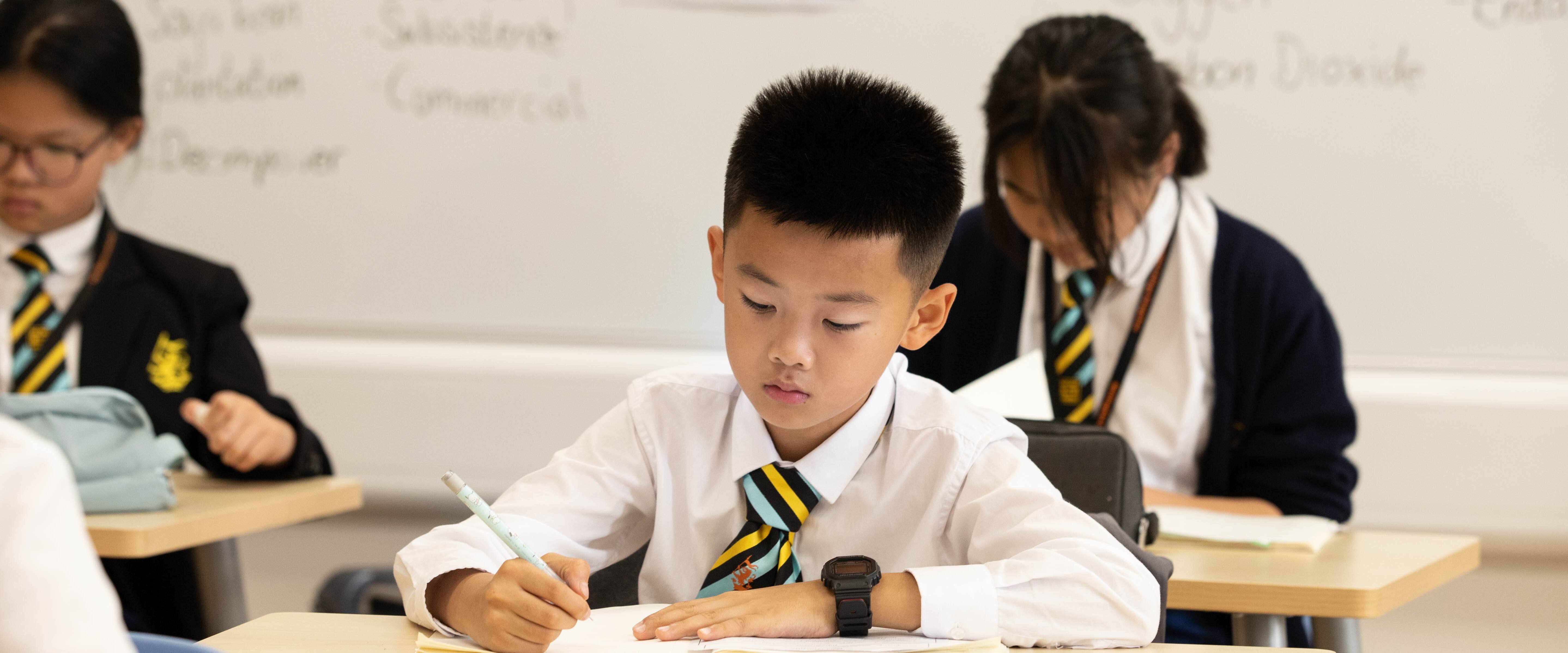
The chance to develop and strengthen creativity and be exposed to a wide variety of artistic endeavours are real advantages of an education at Hiba Academy Hangzhou. All children have the ability to be creative. This article explains how art education at Hiba Academy Hangzhou fosters creativity in four different subjects, art, dance and drama and music.
Leif Raiha
Head of Art
At Hiba Academy Hangzhou, visual art and design study enables pupils to build upon this ability and extend their capacity for artistic expression and representation.
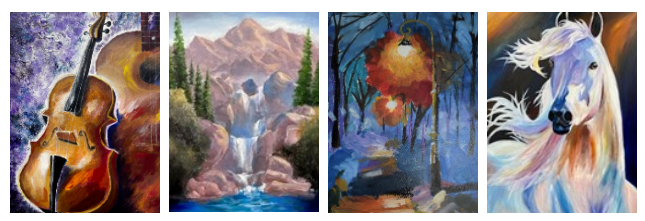
Artworks by pupils
The Art curriculum at Hiba Academy Hangzhou is designed to stimulate creativity and imagination. Through the creation and presentation of artworks, pupils express and communicate their creative insights in various forms, from drawing and painting to assemblage and printmaking. These often show astounding originality and with varying degrees of concreteness and abstraction. Art-making requires both creativity and skill, and it can be cultivated by establishing conditions that encourage and promote its development. Pupils use the creative process to help them acquire and apply knowledge and skills in the arts while developing creativity and imagination through complex activities.
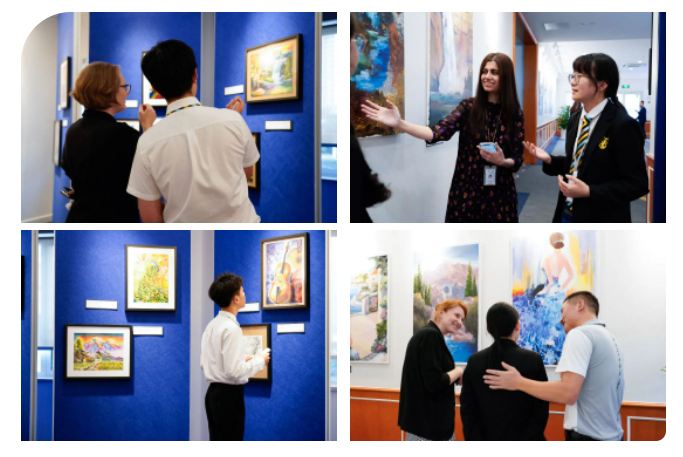
Stages of the Creative Process
The creative process is not entirely linear. It is intended to be followed in a flexible, fluid, and cyclical manner pupils move deliberately and consciously between the stages and vary their order as appropriate. For example, many pupils may benefit from exploring and experimenting before planning and focusing; in some instances, the process may begin with reflecting. Ongoing feedback and opportunities for pupils to engage in reflection and metacognition are integrated into each creative process stage. In this way, assessment by both the teacher and pupils is used to inspire students’ creativity and support their development and achievement.
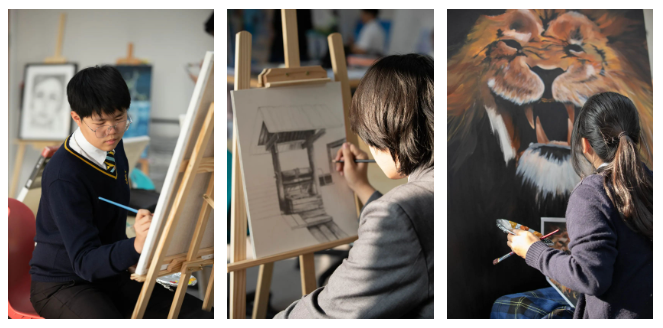
Lisa Diver
Head of Dance and Drama
Drama at Hiba Academy Hangzhou offers our bilingual pupils a creative space to develop the life skills required for a successful future. Communication skills underpin the foundation of drama in Junior High. This includes developing their capacity to understand and speak English and their use of physical and vocal skills to communicate meaning and emotion. They explore their creativity through various styles, themes and topics. They become confident and independent thinkers who can demonstrate an appreciation of their work and others, always with respect and empathy. Drama offers an engaging, practical curriculum that helps break down the feelings of insecurity that can prevent pupils from expressing themselves in front of others and generate a greater appreciation of the performing arts.
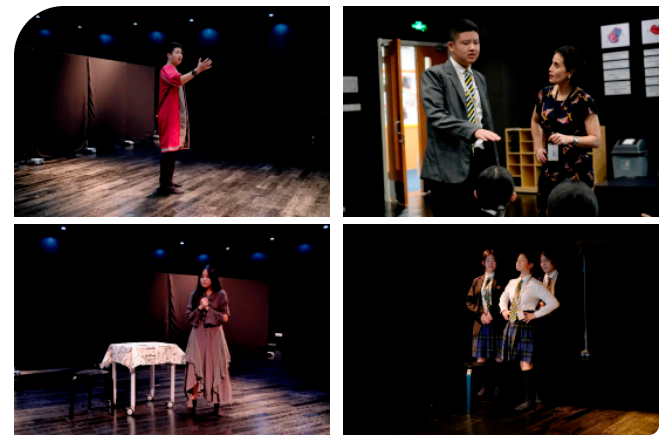
The aims of the curriculum:
Perform in a safe, inclusive environment
Perform solo and in an ensemble
Integrate their knowledge acquired in other areas into their drama performances
Plan written, oral and visual presentations for a variety of audiences
Evaluate written, visual and oral presentations and works of drama
Learn and use the elements of drama
We will ensure we meet these aims by:
Engaging and motivating all students to help them develop and take ownership of their learning
Creating a positive learning environment for all students
Using differentiation strategies to enable every child to find success
Offering opportunities outside of the classroom for students to further express their skills
Aligning with other discipline areas to encourage cross-curriculum learning
Maintaining high expectations for students across all three dramatic domains - devising, performing and responding
Tracking students’ progress and reporting on outcomes

Drama helped me learn teamwork and the understanding of leadership. Because drama itself results from teamwork, we work together to create and perform a better performance. In addition, I often play the role of director. This helped me better understand leadership because what directors usually do is supervise the actors and direct the action in the production of a show. I enjoy this process, and I enjoy drama.
Learning drama has been great for building my confidence to express myself before the crowds.


Drama helps me build confidence, and I enjoy immersing in different characters.

Podcast “drama - an essential tool for any career path”. The podcast highlights the journey and benefits of drama for a bilingual Chinese post-graduate student.
Robert Greer
Head of Music
At Hiba Academy Hangzhou, the arts form a fundamental cornerstone of our holistic educational offering. Music is, of course, central to this. The music curriculum at Hiba is delivered to enable pupils to gain a firm grasp of musical skills and knowledge whilst developing a lifelong love of music.
Pupils at Hiba study across many periods, places, and cultures to get a wide-ranging, balanced understanding of how music is a universal language that can be seen as a bridge that connects these parts of the human experience. Pupils are supported and encouraged to use their musical skills creatively in every lesson and through our SA programme.
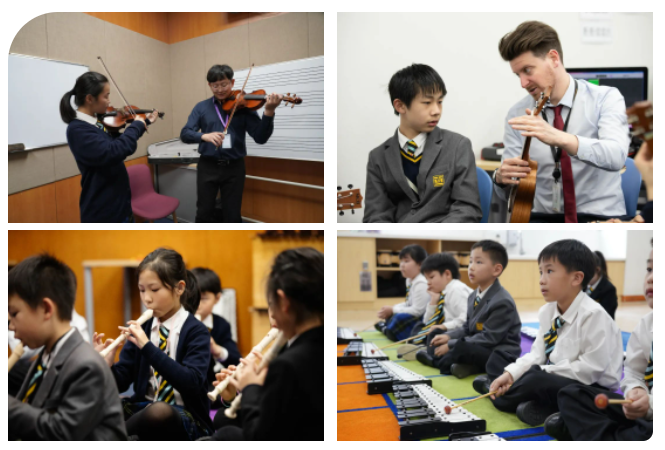
Listening and appraising
In this unit, pupils develop their listening and appraising skills by studying music across various styles and genres. Analysis of instruments, musical elements, and lyricism is explored by exposing our pupils to different musical pieces.
Performance skills
We encourage pupils to develop creative thinking, aesthetic sensitivity, critical awareness, self-confidence, self-motivation and their musical interests and abilities, including the ability to make music individually and in groups.
Composition skills
We emphasise the creative aspect of music and allow pupils to appreciate the process of creating music. They are introduced to the technical and creative skills required by a composer. Pupils are encouraged to explore a range of compositional starting points, investigate a range of techniques for developing and manipulating ideas, and turn them into complete pieces of music.
In Primary, the children learn the basics of playing instruments like glockenspiels, xylophones, metallophones, hand percussion, recorder, ukulele, guitar, and djembes. In the Secondary, we focus on band instruments like the drum kit, electric bass guitar, electric guitar, and keyboard. In addition, pupils in Primary explore different ways to compose by working collaboratively with their peers. In Secondary, the pupils study musical production and composing through software like GarageBand and Sibelius. Singing is a fundamental part of music learning in all years.
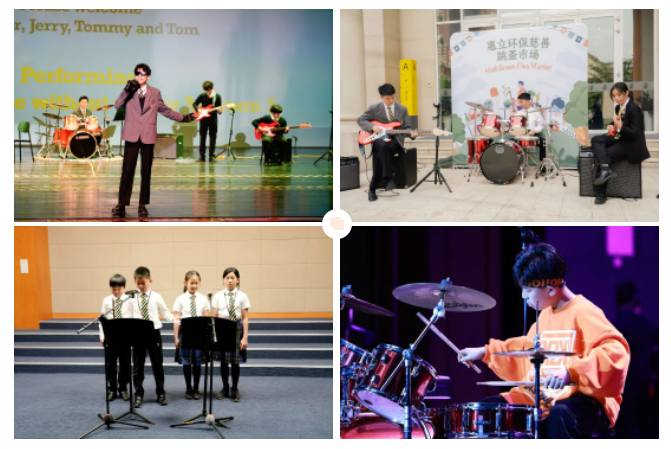
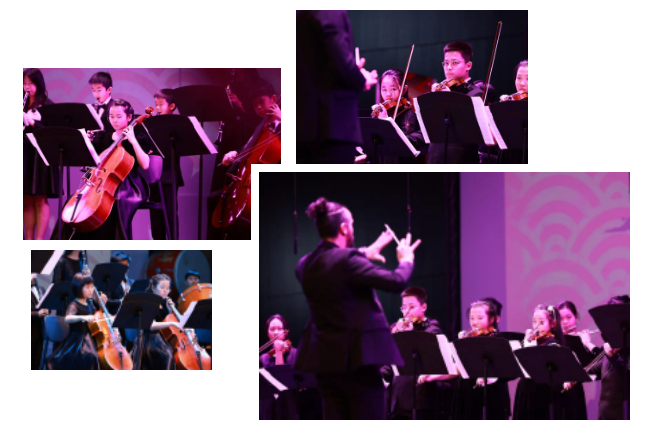
The orchestra has pupils from grades 3 to 10 playing instruments like violin, cello, saxophone, trumpet, percussion, flute, clarinet, and oboe. We currently have 30 musicians in the orchestra that continue to develop in strength, musicianship, and experience.
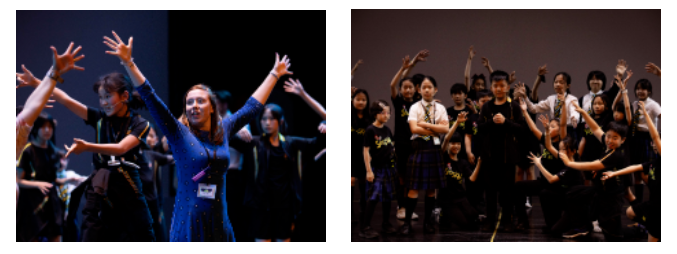
The musical production allows pupils who enjoy music, dance, and drama to explore and create a fantastic show every year. The children have the opportunity to develop their characters and implement their artistic ideas for performing. This experience allows our pupils to develop social, creative, and musical skills that equip them for other areas of learning and life.